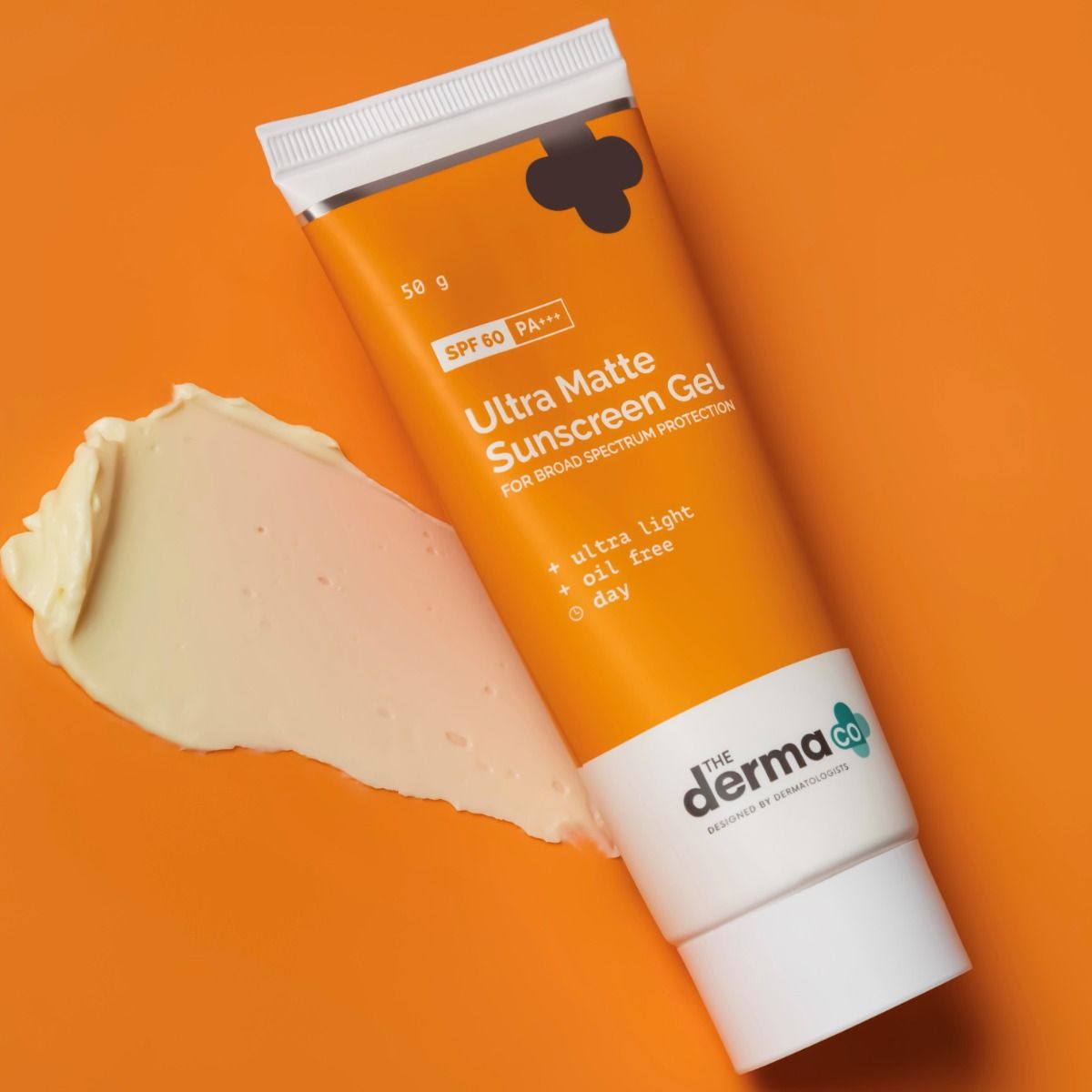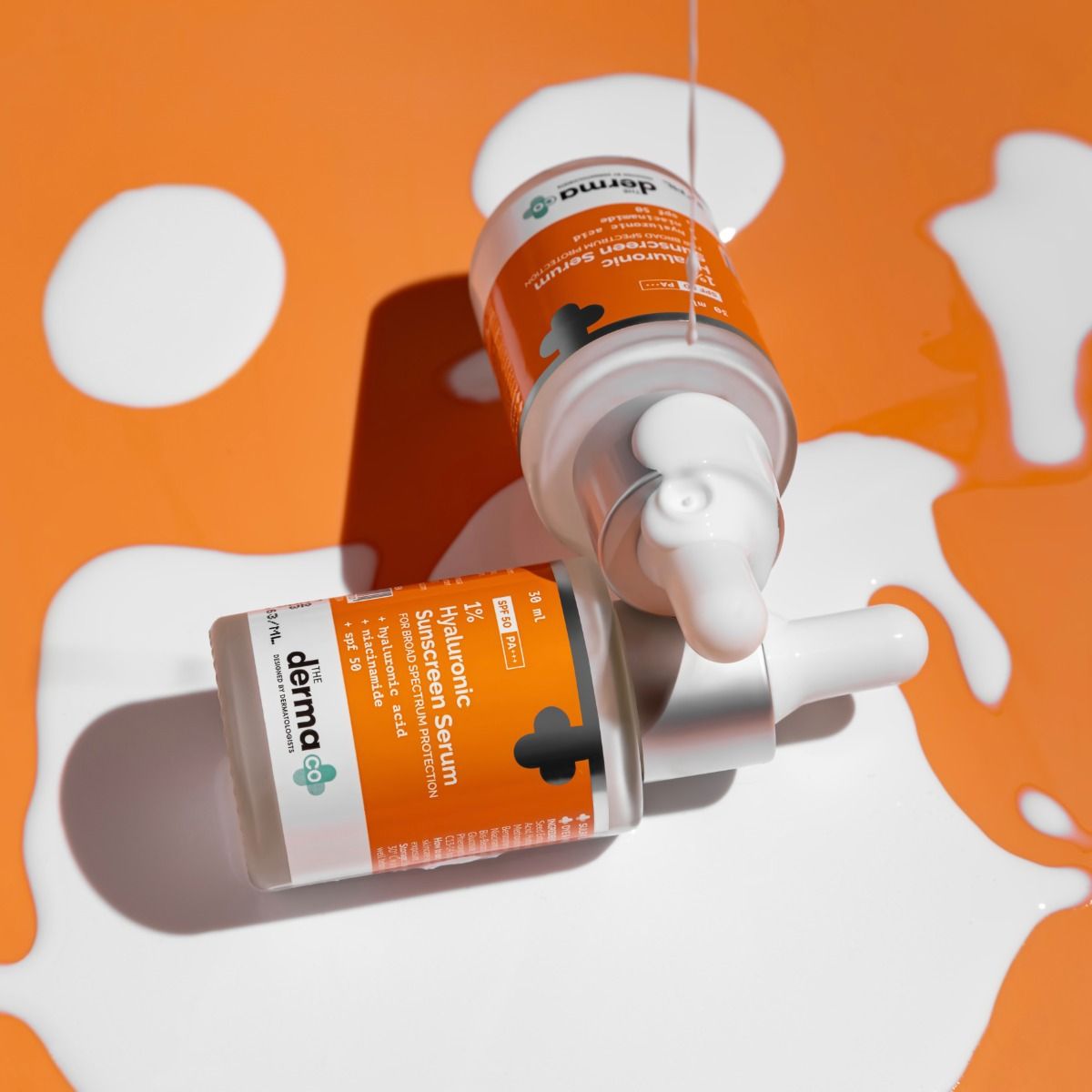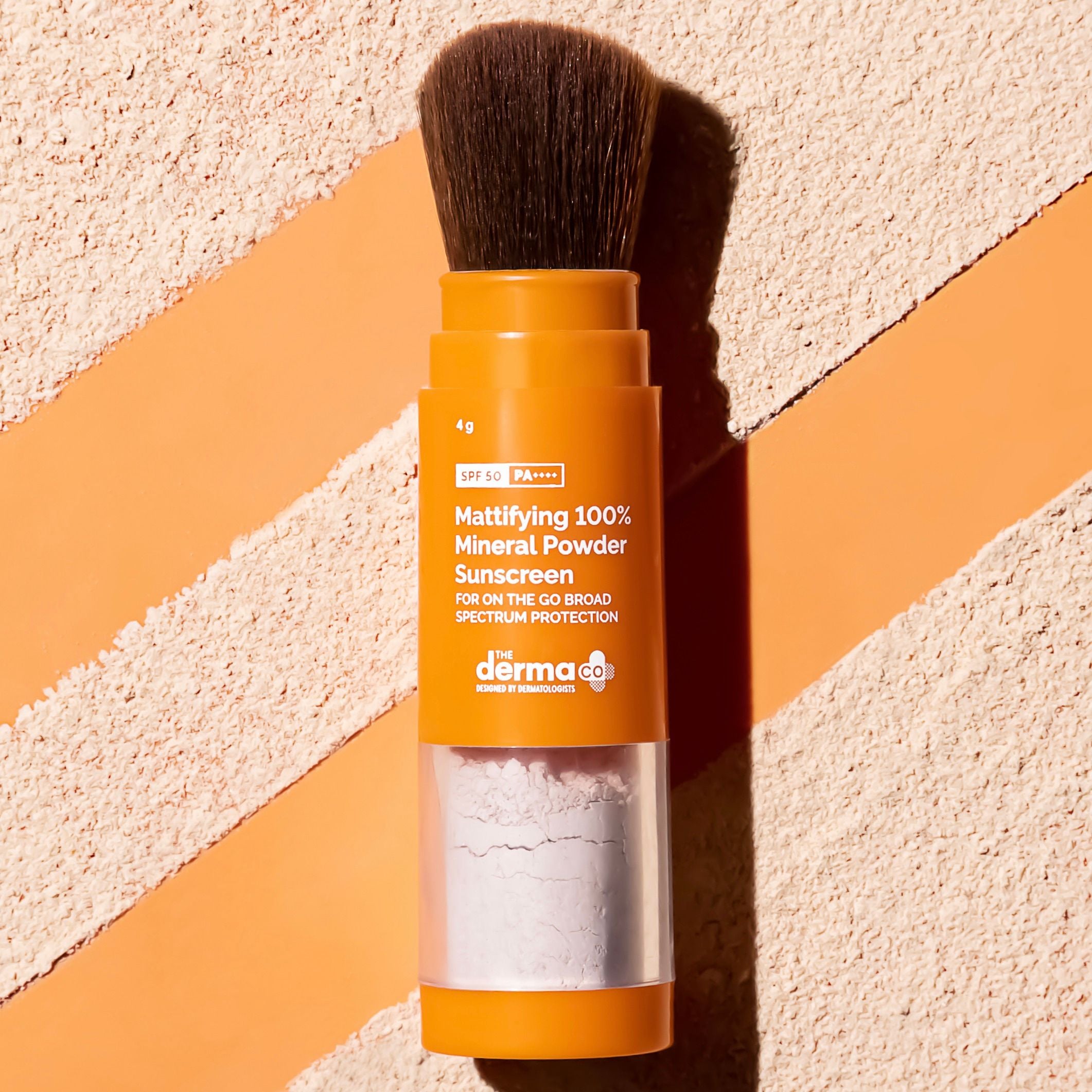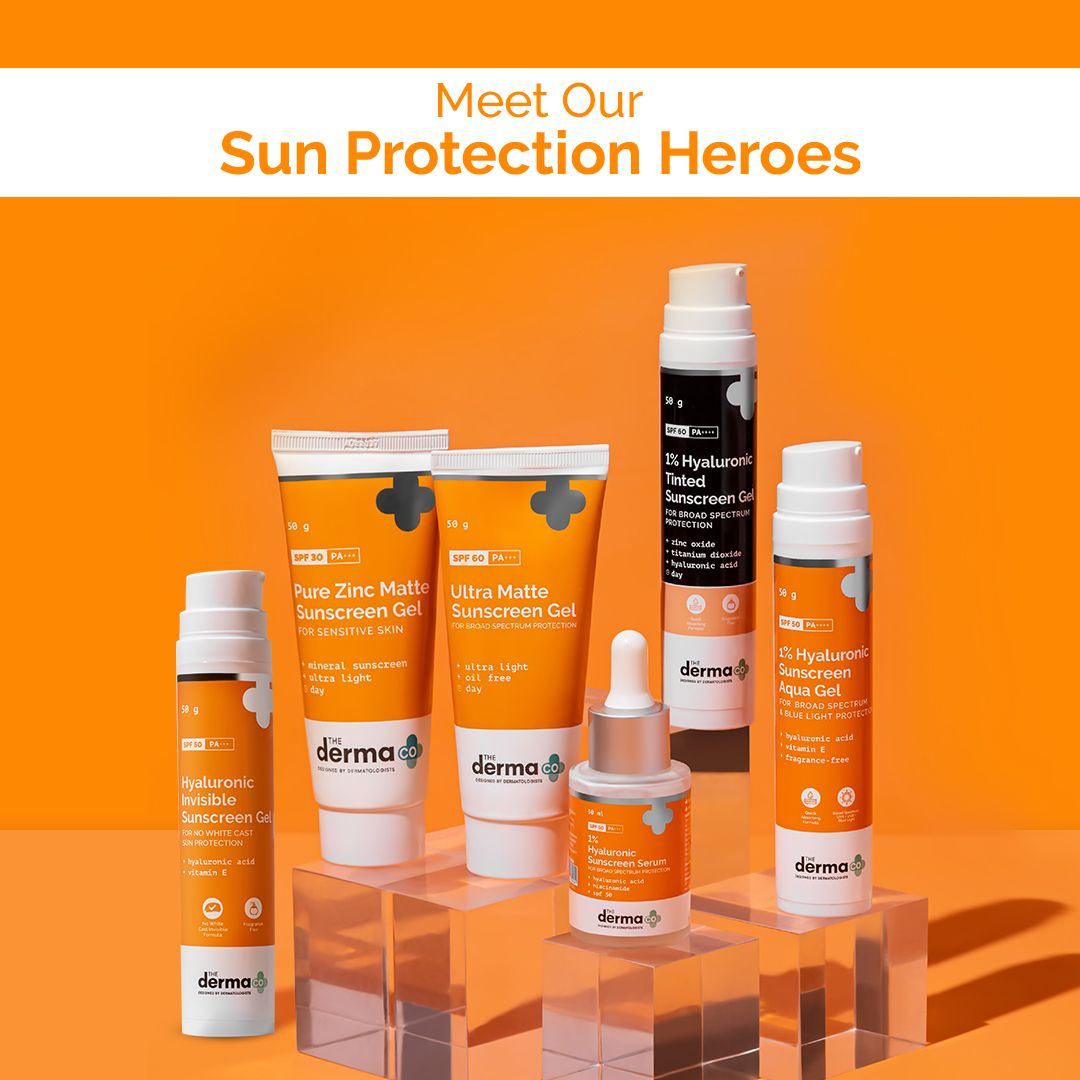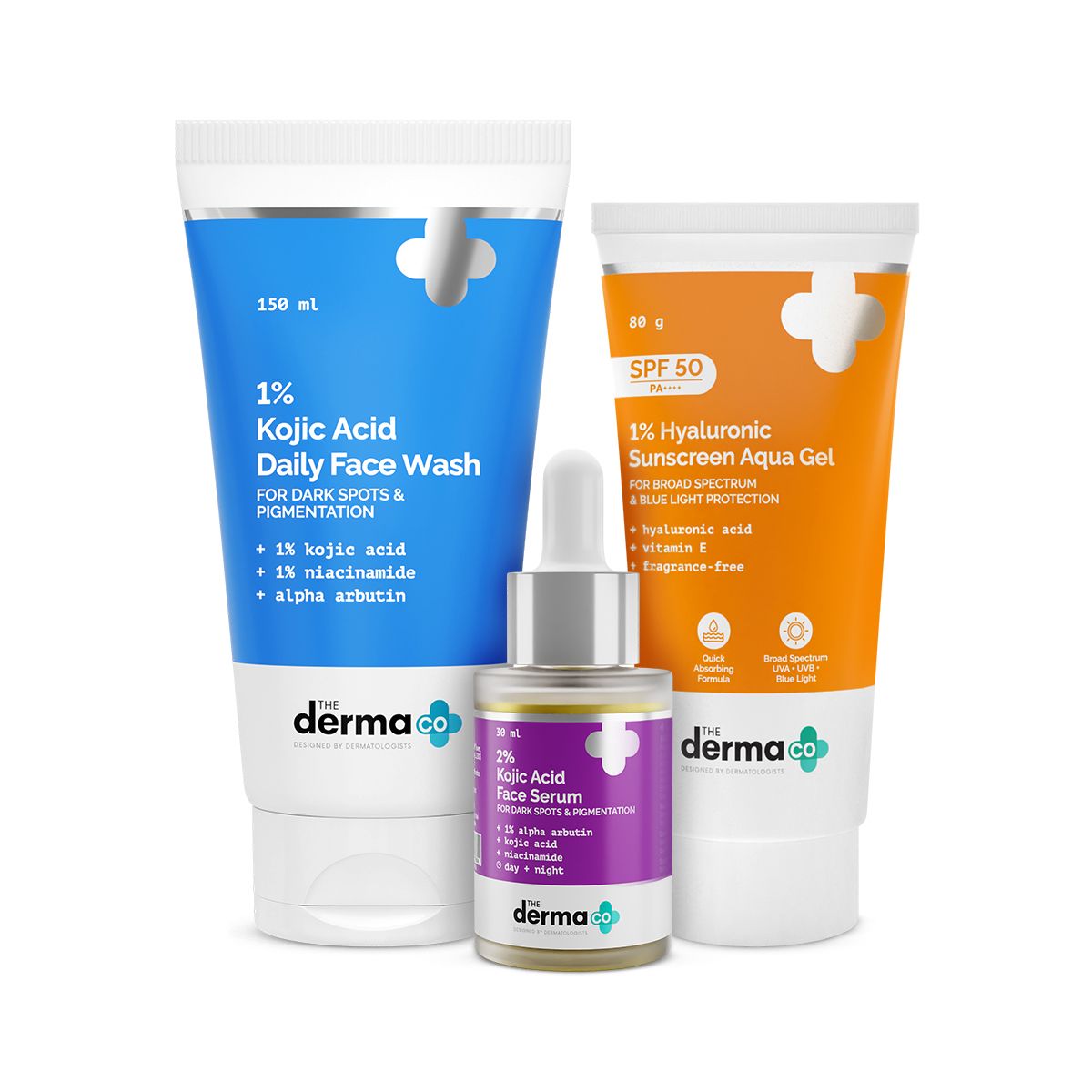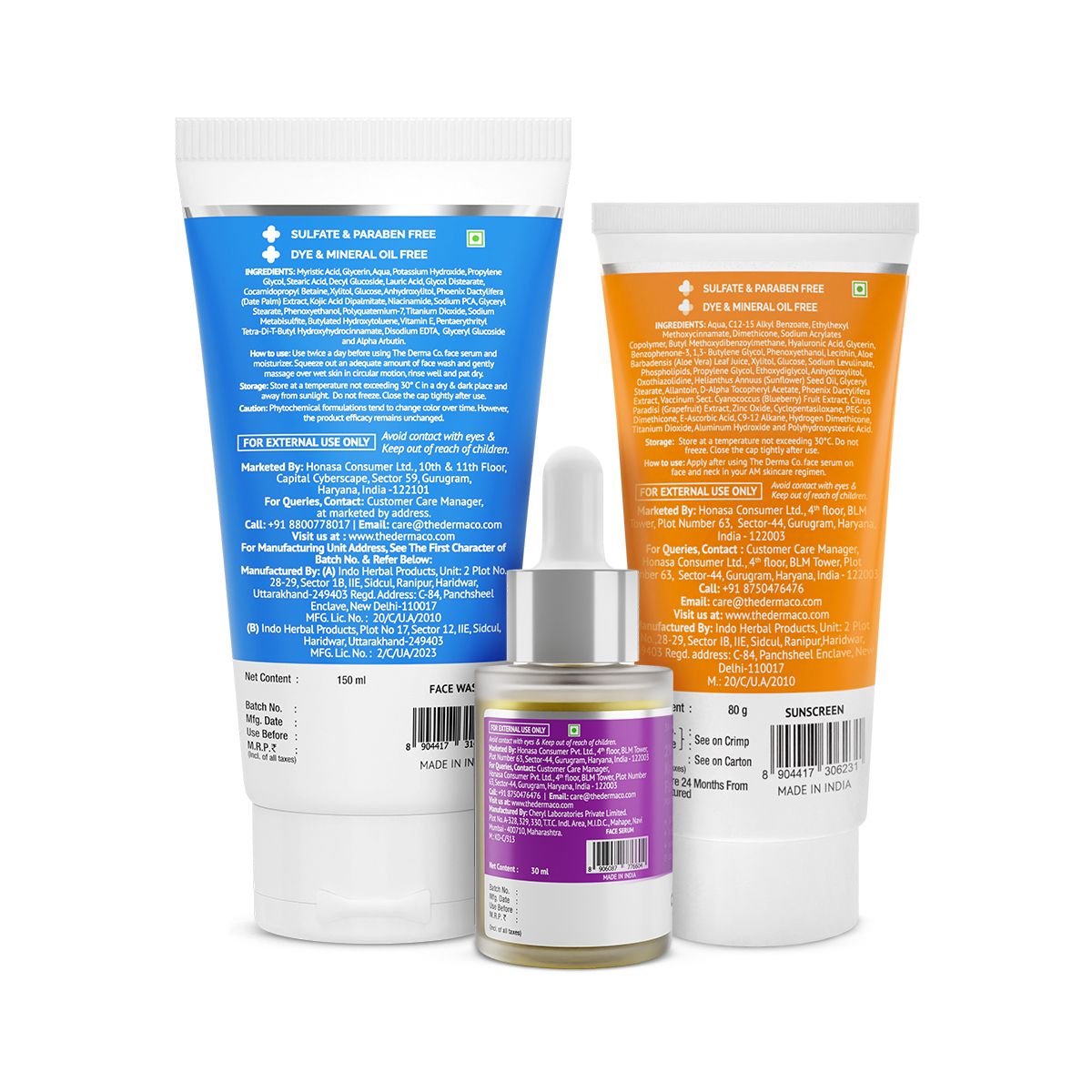Sunscreen for Dry Skin
FAQs
If you're looking for the best hydrating sunscreens for dry skin, it is best to opt for a formulation that contains hydrating ingredients such as hyaluronic acid, glycerine, or ceramides. An ideal recommendation here is The Derma Co 1% Hyaluronic Sunscreen Aqua Gel, which offers a broad spectrum from UV rays and blue light. Formulated with Hyaluronic Acid, Vitamin E, and Titanium Dioxide, it replenishes skin and restores moisture levels. As a sun-protectant formula with SPF 50 and PA++++ protection, it helps defy age lines and tan lines with consistent use. It also helps prevent signs of premature aging caused by prolonged sun exposure. This dermatologist-designed formula contains an oil-free and fragrance-free formulation. It doesn't clog the skin pores, absorbs quickly, and provides intense hydration to the skin.
According to dermatologists, the SPF (Sun Protectant Factor) you pick for dry skin depends on your environment. If you live in regions with hot weather conditions, it is best to opt for sunscreen with SPF 50 or even more. But if you live in areas with cold weather conditions, sunscreen with SPF 30 will work perfectly for your skin.
Both gel and cream sunscreens are suitable for dry skin. However, it depends on personal preference and the product's specific formulation. Gel SPFs are lighter in texture and quickly absorb into the skin, as they don't feel heavy or greasy. They also contain hydrating ingredients, such as hyaluronic acid or glycerine, which can help moisturize dry skin while providing sun protection. Cream-based SPFs offer a richer texture than gels, providing more emollient and moisturizing properties to your skin. They offer long-lasting hydration, helping create a barrier on the skin. The best SPF for dry skin is the one that provides adequate sun protection coupled with specific skincare benefits. We recommend you opt for SPFs labeled as â'œmoisturizing or â'œhydratingâ' to ensure they provide the extra moisture your skin needs.
Incorporating sunscreen on dry skin is quite simple. It is best to wear them on a clean facial canvas because impurities and pollutants can reduce the efficacy of the sun-protectant cream or lotion. Once you have cleansed or moisturized your skin well, take an adequate quantity of the product and apply it on your face, ears, neck, arms, hands, back, legs, and feet. Avoid contact with the eyes during application. Keep in mind that you should reapply it every 2-3 hours to keep your skin protected and healthy.
Yes you should apply sun protectant lotions even at home, especially if you have dry skin. While it's true that you may not be exposed to direct sunlight indoors, harmful UV rays can still penetrate through windows, especially if you're sitting near them for prolonged periods. Consistent use of an SPF is essential for protecting your skin from UV radiation's damaging effects, including premature aging, fine lines, wrinkles. If you're looking for sunscreen for dry skin, we recommend opting for SPFs specifically formulated for dry skin types. You can look for moisturizing ingredients such as hyaluronic acid, glycerine, or ceramides. Additionally, it would be best to consider other sun protection measures, such as wearing protective clothing, avoiding peak sun hours, and seeking shade outdoors. These measures will help shield your skin from overall sun exposure.
The sunscreen itself does not directly reduce flakiness or dryness on your face, but it can play a crucial role in preventing it from worsening skin health. It protects the skin from harmful UV rays, thus reducing the chance of further dryness. Using an SPF regularly shields the skin barrier from environmental damage and helps retain moisture. However, to reduce dryness or flakiness, you must moisturize your skin regularly with fragranceâ'“free moisturizers. Effective moisturizers for dry skin contain ingredients, such as hyaluronic acid, ceramides, or glycerine, which attract and retain moisture in the skin. So, if you have dry skin it is important to swear by your moisturizer and an SPF for best results.
It all depends on the formulations you pick. Some SPFs are formulated with ingredients that leave a white cast on your skin. So it is important to look for a label such as â'˜no white cast' while buying an SPF for your skin type. If you are looking for an SPF that does not give your skin a greasy feeling, we recommend using The Derma Co range of sun protectant creams. They offer lightweight & non-sticky formulations which blend in the skin gently without leaving any white cast.
Absolutely. Applying an SPF to dry skin in winter protects it against sun damage and prevents cold weather from snatching moisture from the skin's layers. The best sunscreen for dry skin helps lock moisture content in the skin, preventing further dehydration. However, we suggest applying a fragrance-free and non-comedogenic moisturizer on the skin before applying an SPF to create a smooth base and provide extra hydration.
The Sun-Protectant Factor doesn't directly correlate with sunscreen's effectiveness and longevity. SPF level indicates the level of protection from UVA/B rays. Several activities, such as sweating or swimming may result in the faster removal of sunscreen than expected. So, if you sweat a lot or play outdoor activities, it is best to pick a water-resistant formula for achieving desired results.
Sunscreen and moisturizers both work differently to give your skin adequate protection and nourishment. A moisturizer helps keep the skin hydrated and restores its moisture barrier, giving your skin a supple, dewy, and glowing look. A sunscreen on the other hand will help you shield the skin from harmful UV rays and blue light. We advise you to apply sunscreen after deeply moisturizing your skin.
Yes, it is equally important to apply sunscreen during winter season. The weather doesn't describe the importance of sunscreen in your daily skincare routine. The damaging rays of the sun and other environmental stressors weaken your skin's outermost layer harming it from within. To prevent these harmful effects, it is highly recommended to incorporate the right safe and effective formula which helps strengthen and protect your skin. We recommend opting for the nourishing benefits of The Derma Co 1% Hyaluronic Long Lasting Sunscreen SPF 50 and PA++++. This non-greasy and lightweight sunscreen leaves no white cast and is sweat and water resistant offering you maximum benefits.
Talking about the best sunscreen suitable for winter season, we would love to let you know that sunscreens aren't available according to weather conditions. A sunscreen with SPF30 and above is built to be suitable for all weathers. To achieve the maximum benefits of a dermatologically designed sunscreen, we recommend using The Derma Co Hyaluronic Invidible Sunscreen Gel. Its fragrance-free formula includes Hyaluronic Acid and Vitamin E goodness which helps deeply moisturize your skin along with protecting it from external damage. This lightweight blend leaves no white cast, is non-greasy, fights free radicals and protects skin's barrier function.












